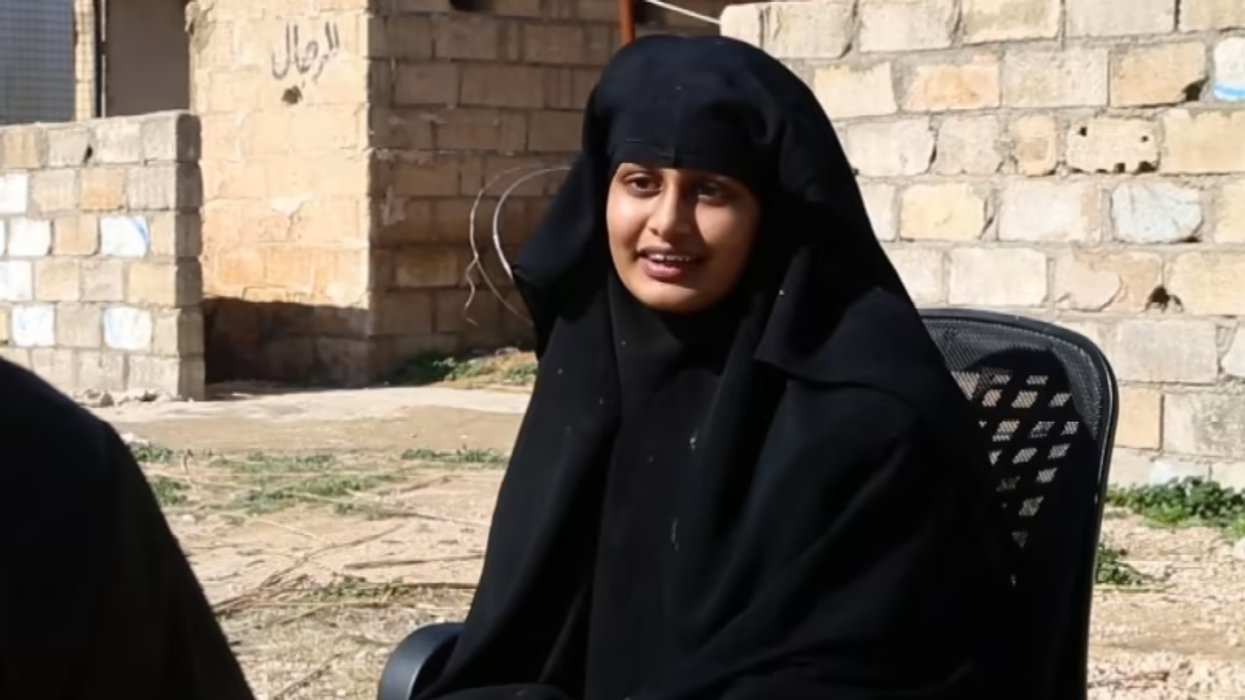Shamima Begum, who left the UK to join Daesh (Islamic State group) in Syria, has said that she understands the public anger towards her and admitted that she joined a terror group.
She told the BBC podcast The Shamima Begum Story that public now see her 'as a danger, as a risk, as a potential risk to them, to their safety, to their way of living'.
"I'm not this person that they think I am," she is reported to have said.
Born in east London to Bangladeshi immigrants, Begum travelled to Syria in 2015 when she was a schoolgirl, aged 15. Britain stripped her of her citizenship in 2019 on national security grounds.
She added that she made her own plans for the journey though she received detailed instructions by Daesh members.
Begum, 23, revealed that she was 'relieved' when she left the UK and expected never to return. She had three children in Syria, all of whom died.
Currently, she is in a legal battle with the British government to try to have her citizenship restored so she can return to London.
According to the BBC, the tribunal hearing is trying to find out whether she was a victim of trafficking for sexual exploitation, or a committed Daesh volunteer who is a threat to the country.
In the podcast, Begum alleged that reports in media portrayed her as a 'bad person' but she is not bad.
She said: "I'm just so much more than Daesh and I'm so much more than everything I've been through."
"But I don't think it's actually towards me. I think it's towards ISIS. When they think of ISIS they think of me because I've been put on the media so much," she was quoted as saying in the podcast.
According to Begum, who now lives in a camp in Syria, the preparation for her and two other girls, Kadiza Sultana,16 and Amira Abase, 15, from Bethnal Green to join Daesh involved their own research and instructions from the group's members. One of the girls later died and the other is also believed to have been killed in Syria.
"I've always been a more secluded person. That's why it's so hard the way my life has turned out being all over the media because I'm not a person that likes a lot of attention on me," she told the BBC.
Former children's minister Tim Loughton said that it was still not clear why Begum joined the terror group as a teenager. In his opinion, public sympathy for her when she first went missing had been replaced by anger.
"I think most people will say that, frankly, we owe her nothing. She got herself into this mess and frankly it's down to her to work out how she's going to get out of it," he was quoted as saying by the BBC.
During a hearing last year, Begum's lawyer, Samantha Knights, said that "at its heart this case concerns a British child aged 15 who was... influenced... with her friends... by a determined and effective Isis propaganda machine".
There was "overwhelming" evidence she had been "recruited, transported, transferred, harboured and received in Syria for the purposes of 'sexual exploitation' and 'marriage' to an adult male", she added in written submissions.
But she told the hearing the process by which the Home Office took the decision to remove Begum's citizenship was "extraordinary" and "over hasty" and failed to investigate and determine whether she was "a child victim of trafficking".
James Eadie, for the Home Office, said Begum "travelled, aligned, and stayed in Syria for four years" and that she only left Daesh-controlled territory for safety reasons "and not because of a genuine disengagement from the group".
According to reports, some 900 people are estimated to have travelled from Britain to Syria and Iraq to join Daesh. Of those, around 150 are believed to have been stripped of their citizenship.





